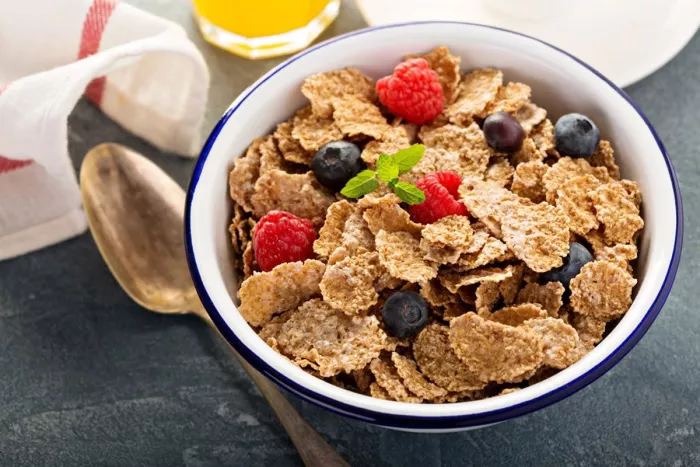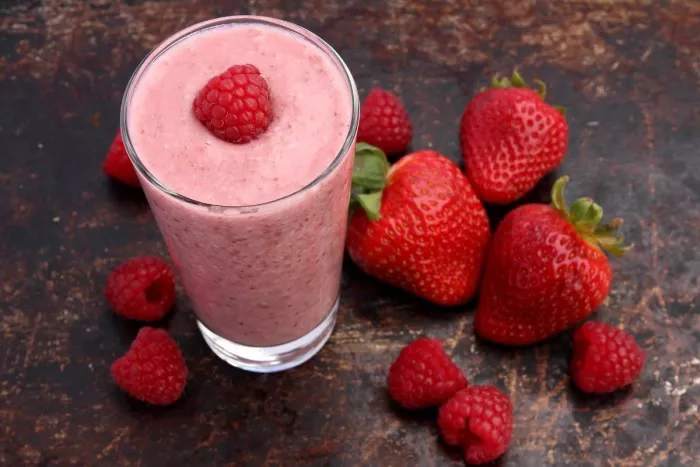Cereals have long been a breakfast staple, loved by people of all ages for their convenience and variety. However, not all cereals are created equal when it comes to nutrition. In this comprehensive guide, we will explore the best cereals to eat for a healthy breakfast. We’ll consider a range of options, from classic choices to newer, more health-conscious brands, to help you make an informed decision that aligns with your dietary and nutritional goals.
Understanding Cereal Nutrition
Before diving into specific cereal recommendations, it’s essential to grasp the key components of cereal nutrition:
Fiber: Fiber is a vital nutrient in cereals. It supports digestive health, helps regulate blood sugar, and contributes to a feeling of fullness. Look for cereals with at least 3-5 grams of dietary fiber per serving.
Whole Grains: Whole grains offer essential nutrients, including vitamins, minerals, and antioxidants. They should be listed as the first ingredient on the cereal box.
Protein: A good cereal should contain a reasonable amount of protein to help you stay full and provide energy throughout the morning.
Added Sugars: Keep an eye out for cereals with minimal added sugars. High sugar content can lead to energy spikes and crashes and negatively impact overall health.
Serving Size: Pay attention to serving sizes and adjust your portions accordingly to meet your nutritional goals.
Classic Cereal Options
Oatmeal: Oatmeal is a classic, nutritious choice. It’s packed with fiber, particularly soluble fiber, which helps lower cholesterol levels. Steel-cut oats and old-fashioned rolled oats are the healthiest options, as they are less processed than instant varieties. Top your oatmeal with fresh fruit, nuts, or a sprinkle of cinnamon for extra flavor.
Wheat Bran Cereal: Wheat bran cereal, such as bran flakes, is an excellent source of fiber. These cereals typically contain little added sugar and can be a tasty, nutritious way to start your day.
Shredded Wheat: Shredded wheat is a simple, whole-grain cereal that’s low in sugar and provides fiber and nutrients. Opt for the plain, unsweetened version and add your preferred toppings.
Muesli: Muesli is a mix of rolled oats, nuts, seeds, and dried fruits. It’s a natural and hearty cereal option. However, be cautious about the sugar content in some store-bought muesli varieties. You can also make your own muesli to control the ingredients.
Modern Health-Conscious Cereals
In recent years, many brands have developed cereals that cater to health-conscious consumers. These cereals often feature innovative ingredients and lower sugar content.
Kashi GoLean: Kashi GoLean cereals are known for their high fiber and protein content. They are typically sweetened with a moderate amount of natural ingredients like honey and dried fruits. These cereals can help you stay full and energized throughout the morning.
Nature’s Path Organic Flax Plus Multibran Flakes: This organic cereal is packed with flax seeds, a great source of omega-3 fatty acids. It’s also high in fiber, making it a nutritious choice for those looking to improve heart health.
Barbara’s Puffins: Puffins cereals are free from artificial flavors and preservatives. They contain whole grains and are low in sugar. The original Puffins cereal is a popular choice, but there are various flavors to explore.
Bob’s Red Mill Old Country Style Muesli: For those who prefer muesli, Bob’s Red Mill offers a wholesome blend of oats, nuts, seeds, and dried fruits. You can customize your muesli bowl with fresh fruit and yogurt for added flavor and nutrition.
Low-Sugar Cereals for Health
Cereals with low added sugar content are ideal for maintaining steady energy levels and overall health. Here are some options to consider:
Special K Original: Special K Original is a classic cereal with a subtle sweetness. It’s a low-sugar choice that provides vitamins and minerals to support a balanced diet.
Cheerios: Cheerios are a heart-healthy option known for their low sugar content. They are made from whole grains and are often recommended for those seeking to manage their cholesterol levels.
Ezekiel 4:9 Sprouted Whole Grain Cereal: This cereal is made from sprouted grains and legumes, offering a unique combination of ingredients. It’s low in sugar and rich in nutrients.
Nature’s Best Cereal: This cereal by Nature’s Path is made with whole grains and seeds, providing a rich source of fiber and healthy fats. It’s lightly sweetened with fruit juice.
Gluten-Free and Allergen-Friendly Options
For those with dietary restrictions, including gluten sensitivity or allergies, there are cereals that cater to specific needs. These options are often made from alternative grains and are free from common allergens.
Nature’s Path Organic Mesa Sunrise: Mesa Sunrise is a gluten-free cereal made from organic corn, flax seeds, and amaranth. It’s a suitable choice for individuals with gluten sensitivity.
Cascadian Farm Organic Purely O’s: This gluten-free cereal is made from organic whole-grain oats and is free from artificial ingredients. It’s a favorite among those with gluten sensitivity.
Enjoy Life Perky’s Crunchy Flax Cereal: This cereal is not only gluten-free but also free from common allergens like wheat, dairy, peanuts, tree nuts, and soy. It’s a safe choice for those with multiple allergies.
Freedom Foods Tropic-O’s: Tropic-O’s are a gluten-free and nut-free cereal option that offers a tropical twist with dried pineapple and coconut. They are a unique and allergen-friendly choice.
Personalizing Your Cereal Bowl
The best cereal choices can vary depending on individual taste and dietary preferences. Here are some tips for personalizing your cereal bowl:
Add Fresh Fruit: Enhance the nutrition of your cereal by adding fresh fruit. Berries, bananas, apples, and pears are excellent options that provide natural sweetness and additional fiber.
Include Nuts and Seeds: Sprinkle chopped nuts, seeds, or a mix of both on top of your cereal. Almonds, walnuts, chia seeds, and flax seeds can enhance the nutritional profile of your breakfast.
Use Yogurt or Milk: Opt for unsweetened yogurt or milk to complement your cereal. Greek yogurt provides extra protein, while almond or soy milk is suitable for those with lactose intolerance.
Drizzle Honey or Maple Syrup: If you prefer a touch of sweetness, drizzle a small amount of natural sweeteners like honey or pure maple syrup. Remember to use them sparingly.
Experiment with Spices: Spice up your cereal with a pinch of cinnamon or nutmeg for added flavor and health benefits. Cinnamon, in particular, is known for its potential to help regulate blood sugar.
Conclusion:
Cereals can be a healthy and convenient choice for breakfast when you select the right options. Prioritizing whole grains, low sugar content, and additional nutrients like fiber, protein, and healthy fats can lead to a satisfying and nutritious start to your day.
























